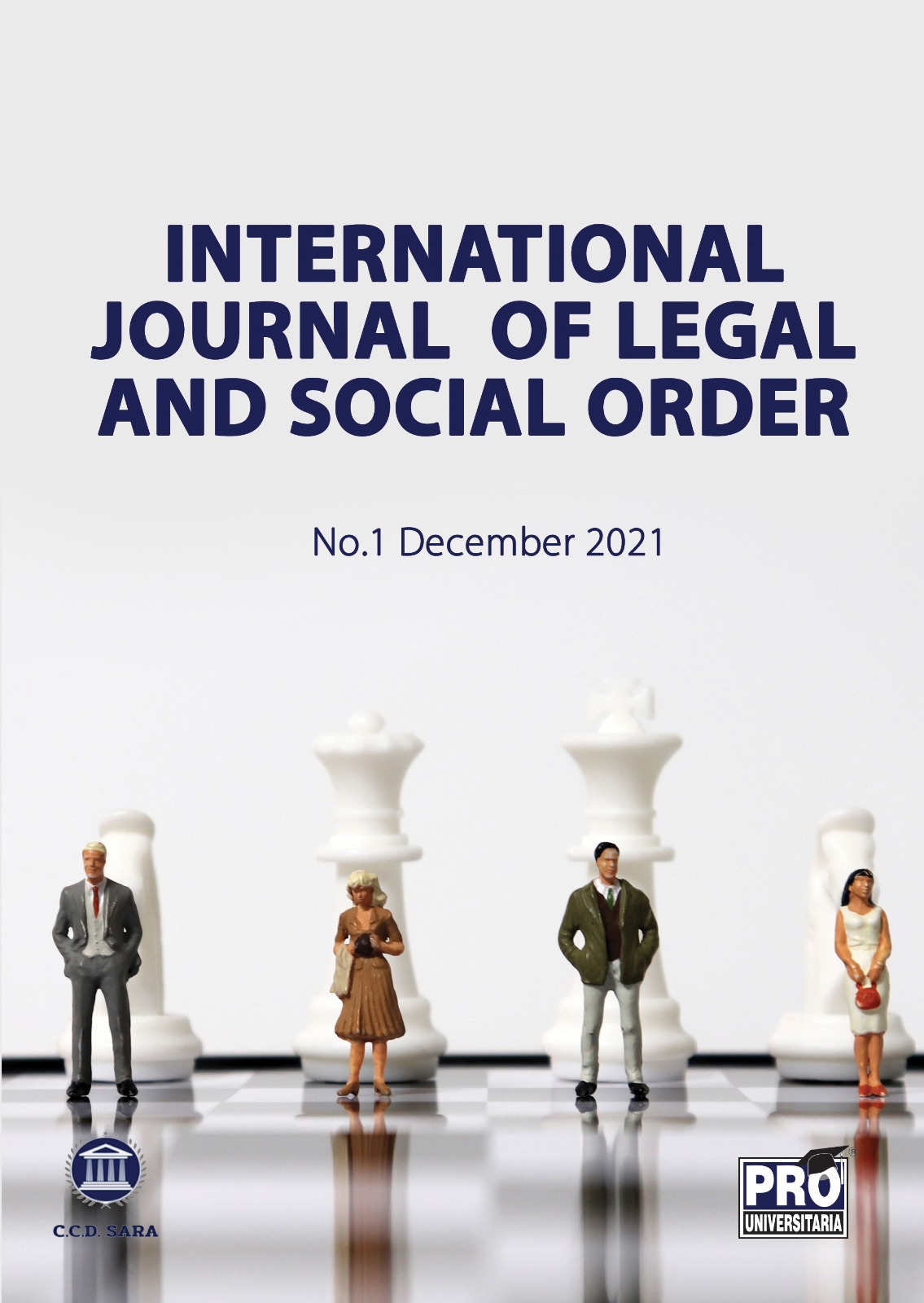HUMAN RIGHTS ABOVE ALL? – THOUGHTS ON NECESSARY RESTRICTIONS CONCERNING THE FREEDOM OF THOUGHT, CONSCIENCE AND RELIGION
DOI:
https://doi.org/10.55516/ijlso.v1i1.17Keywords:
freedom of thought, conscience and religion, human rights, restriction, cultism, criminal organisationAbstract
The freedom of thought, conscience and religion is one of the most essential human rights promulgated in the Declaration of the Rights of Man and of the Citizen during the French Revolution. However, a freedom without any limit can also hold unthinkable dangers to the society. That is the reason why the modern international human right documents and the constitutions of the countries acknowledge the possibility of restriction. Concerning this fundamental right, we are able to distinguish several elements, but only one of them – the freedom to believe – shall be unristricted. In particular cases, the practice of one’s religion can lead to the violation of public order or other fundamental rights. There are minority religions which do not respect the order of law and tend to commit certain delicts. Against these movements, the tools of penal law shall be applicable.
References
Aronson, Elliot, A társas lény, Közgazdasági és Jogi Könyvkiadó, 1994, Bp.
Belovics Ervin, Nagy Ferenc, Tóth Mihály, Büntetőjog I – Általános rész, HVG-ORAC Lap- és Könyvkiadó Kft., 2014, Bp.
le Bon, Gustave, A tömegek lélektana, Hermit KönyvKiadó Bt., 2018, Onga.
Bütösi János, Tévtanítások pergőtüzében, Református Zsinati Iroda Tanulmányi Osztálya, 1994, Bp.
Domínguez Velasco, Josue, Sectas en el Sistema Jurídico Español, Publicaciones Didácticas (79):191-212, 2017.
Görgényi Ilona, Horváth Tibor, Gula József, Jacsó Judit, Lévay Miklós, Sántha Ferenc, Váradi Erika, Magyar büntetőjog – Általános rész, Wolters Kluwer Hungary, 2019, Bp.
Goyard, Claude, L’Administration face aux sectes, La Revue administrative, Volume 49(293):539-543, 1996.
Kamarás István: A „Keresztények”: egy szekta szüetése és gyermekbetegségei, Gondolat Kiadó, 2010, Bp.
Lombroso, Cesare, Lángész és őrültség, LAZI Bt., 1998, Szeged.
Lugosi Ágnes, Lugosi György (ed.), Szekták – Új vallási jelenségek, Pannonica Kiadó, 1998, Bp.
Lugosi György (ed.), Szekták, Budapesti Ismeretterjesztő Társulat, 1994, Bp.
Macone, Christophe, Les différentes réponses de l’État français aux dérives des groupes sectaires, Criminologie, Volume 41(2):185-212, 2008.
Majtényi Balázs, A környezet nemzetközi jogi védelme, Elte Eötvös Kiadó, 2019, Bp.
Moore, Joey Peter, Piercing the Religious Veil of the So-Called Cults, Pepperdine Law Review, Volume 7(3):655-710, 1980.
Morin, Jean-Pierre, Les sectes et la loi, Revue des deux mondes, no. octobre:37-41, 1995.
Pratkanis, Anhony R., Aronson, Elliot, A rábeszélőgép, Ab Ovo Kiadó, 2012, Bp.
de Rosa, Giuseppe, Vallások, szekták és kereszténység, Szent István Társulat, 1991, Bp.
Schanda Balázs, A gondolat, a lelkiismeret és a vallás szabadsága, in Jakab András – Fekete Balázs (ed.): Internetes Jogtudományi Enciklopédia, Available at: https://ijoten.hu/szocikk/a-gondolat-a-lelkiismeret-es-a-vallas-szabadsaga #_ftnref23, accessed 10 Nov. 2021.
Schweitzer Gábor, Lelkiismereti és vallásszabadság, in LAMM V. (szerk.): Emberi jogi enciklopédia. HVG–ORAC Lap- és Könyvkiadó Kft., 463-469, 2018, Bp.
Vernette, Jean, Szekták, Palatinus Kiadó, 2003, Bp.
Zhu, Guobin, Prosecuting ‘Evil Cults’: A Critical Examination of Law Regarding Freedom of Religious Belief in Mainland China, Human Rights Quarterly, Volume 32(3):471-501, 2010.


